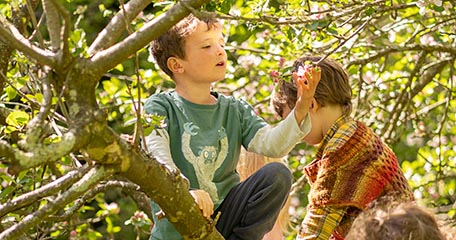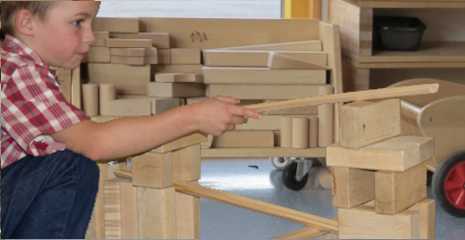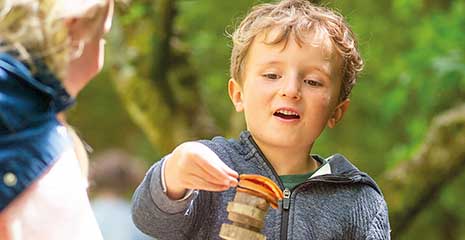The adult’s role in block play
The Foundations of Learning
More than 100 years ago Carolyn Pratt, inventor of the Unit block, founded City & Country School in New York City. Still today their curriculum is built around learning with blocks. Here are some time-tested tips for teachers and practitioners who want to support their children in the block area.
As I think about the role of the teacher in a block area, I think about his or her presence is the most important. It's very important for teachers in the beginning of a school year to create a culture around block building, and that happens before the children even first come into the classroom.
I'm making my own building
I think the arrangement of the block area in any teacher's classroom is crucial to the experience the children will have. The larger the space the children can be given to interact with blocks open endedly, the richer the experience will be and the more children will be able to be involved and interact together.
It's always tricky to know when you should interject yourself as the adult into children's play. You don't want to disrupt their train of thought, but you also want to encourage the next level or a stage. We refer to this as scaffolding. So what children can do alone and what they can do with a little bit of cues and clues and prompts from the teacher can get them to create things that are slightly above their own ability. So we're always looking for that sweet spot.
It's going to balance. What do you think will happen if you add another one on top?
I think one of the most effective things a teacher can do to facilitate deep block play is to be an active observer. The ideal scene at our school is for there to be a hustle and bustle of children's activity with a teacher looking on from the side, inserting him or herself in to ask a question or to redirect or to clarify something to help children with the language they need to negotiate and collaborate, but not to direct the play, not to insert themselves into a problem.
There might be some children who aren't quite sure what to do because open ended activities are not so familiar to them. They might gravitate toward a puzzle or something more closed ended. So I think an important role of the teacher is to really observe what's going on and see the children who also are not building and start playing with them. Insert yourself into the play a little more than you might and then back out of it once they kind of get the idea.
At some point, it's always important to clean up the blocks, having the blocks labeled on the shelf helps a lot. Using it as a learning opportunity instead of just a chore like I'm going to start with units, we're going to next do double units can turn the whole pick up thing into more of a game.
I think one of the most important things that a teacher can do to support block play is to really trust in the materials. Once the teacher has gained that trust in the learning experiences that are offered by blocks, then the learning can really happen.






